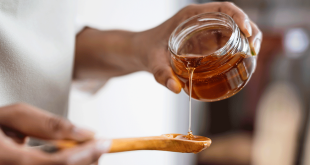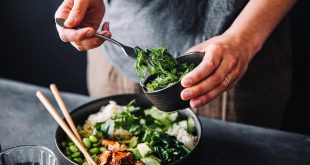While the spiritual focus takes centre stage, ensuring proper nourishment for pre-dawn meals (Suhoor) and evening meals (Iftar) remains important.
What is meal prepping?
Meal prepping, a practice of planning and preparing meals in advance, can be a valuable tool during Ramadan, promoting convenience and allowing you to focus on prayer and reflection.
How to meal prep during Ramadan
Here are five effective ways to incorporate meal prep into your Ramadan routine:
1. Plan and prioritise
The cornerstone of successful meal prep is planning. Dedicate some time before Ramadan to create a meal plan that caters to your preferences and dietary needs.
Consider incorporating a variety of dishes to maintain a balanced diet throughout the month. Prioritise dishes that store well and can be easily reheated or enjoyed cold, minimising the need for extensive last-minute cooking.
2. Batch cooking
Embrace the power of batch cooking. Double or triple recipes while preparing Suhoor or Iftar meals. The extra portions can be stored in airtight containers in the refrigerator or freezer for later consumption. This approach saves time and ensures you have readily available, nutritious meals throughout the holy month.
3. Embrace the power of grains
Whole grains like brown rice, quinoa, and bulgur wheat are excellent staples for meal prep. They cook in bulk quantities, reheat well, and provide sustained energy for long fasting hours. Prepare a large pot of grains early in the week and incorporate them into various dishes throughout Ramadan.
4. Pre-chop and portion
Save precious time during Suhoor and Iftar by chopping vegetables, fruits, and herbs in advance. Store them in airtight containers in the refrigerator to maintain freshness. Pre-portioning ingredients like nuts, seeds, and dried fruits can also be a helpful time-saver, especially for preparing quick Suhoor meals.
5. Soups and salads
Don’t underestimate the power of soups and salads. Prepare a large pot of soup of choice early in the week. These hearty soups can be reheated for Suhoor or enjoyed at Iftar with a side dish.
Salads with pre-chopped vegetables, protein sources like grilled chicken or chickpeas, and a simple dressing offer a refreshing and healthy option for Suhoor or Iftar.
By incorporating these meal prep strategies, you can approach Ramadan with a sense of organisation and peace of mind. Meal prepping allows you to prioritise spiritual reflection and enjoy delicious, nutritious meals throughout the holy month.
Embrace the convenience and tradition of planning ahead, ensuring a fulfilling and enriching Ramadan experience.
 Top Naija News: Nigerian News, Breaking News Nigeria and World News Top Naija News is a daily news publication in Nigeria, delivering the latest breaking news in Nigeria and around the world.
Top Naija News: Nigerian News, Breaking News Nigeria and World News Top Naija News is a daily news publication in Nigeria, delivering the latest breaking news in Nigeria and around the world.



